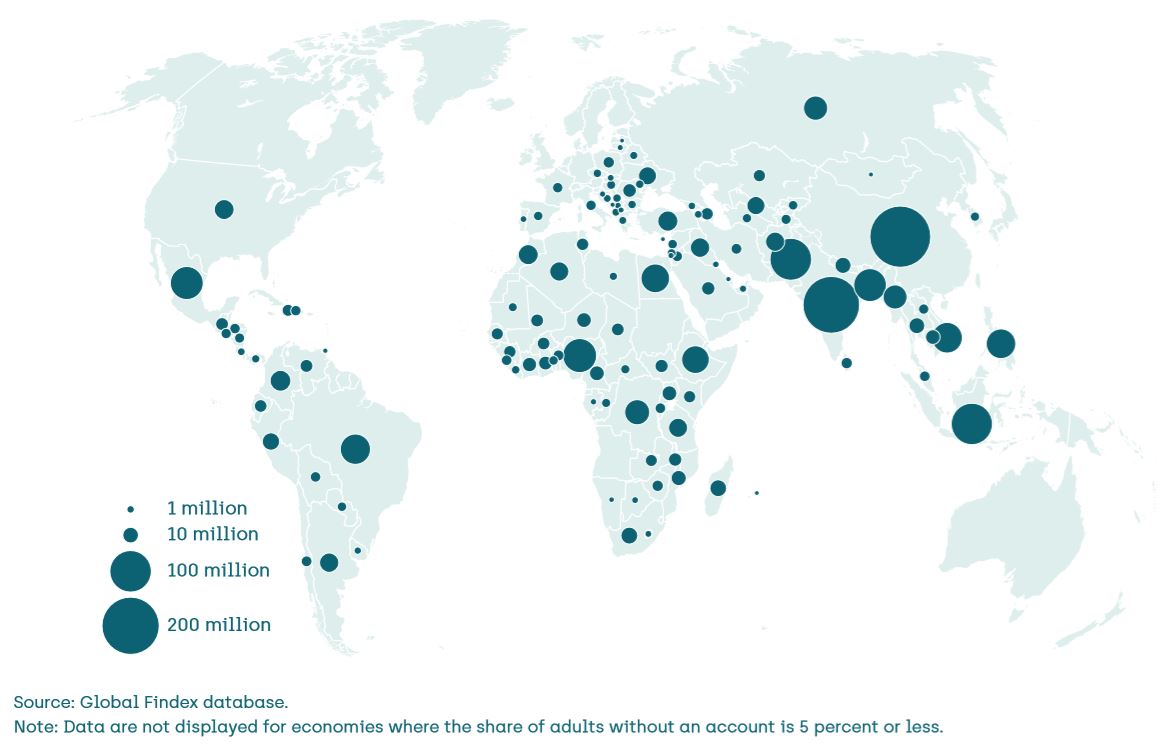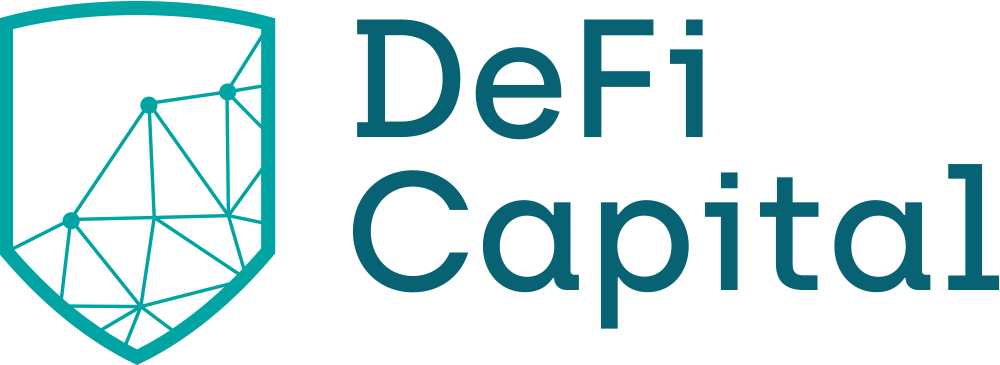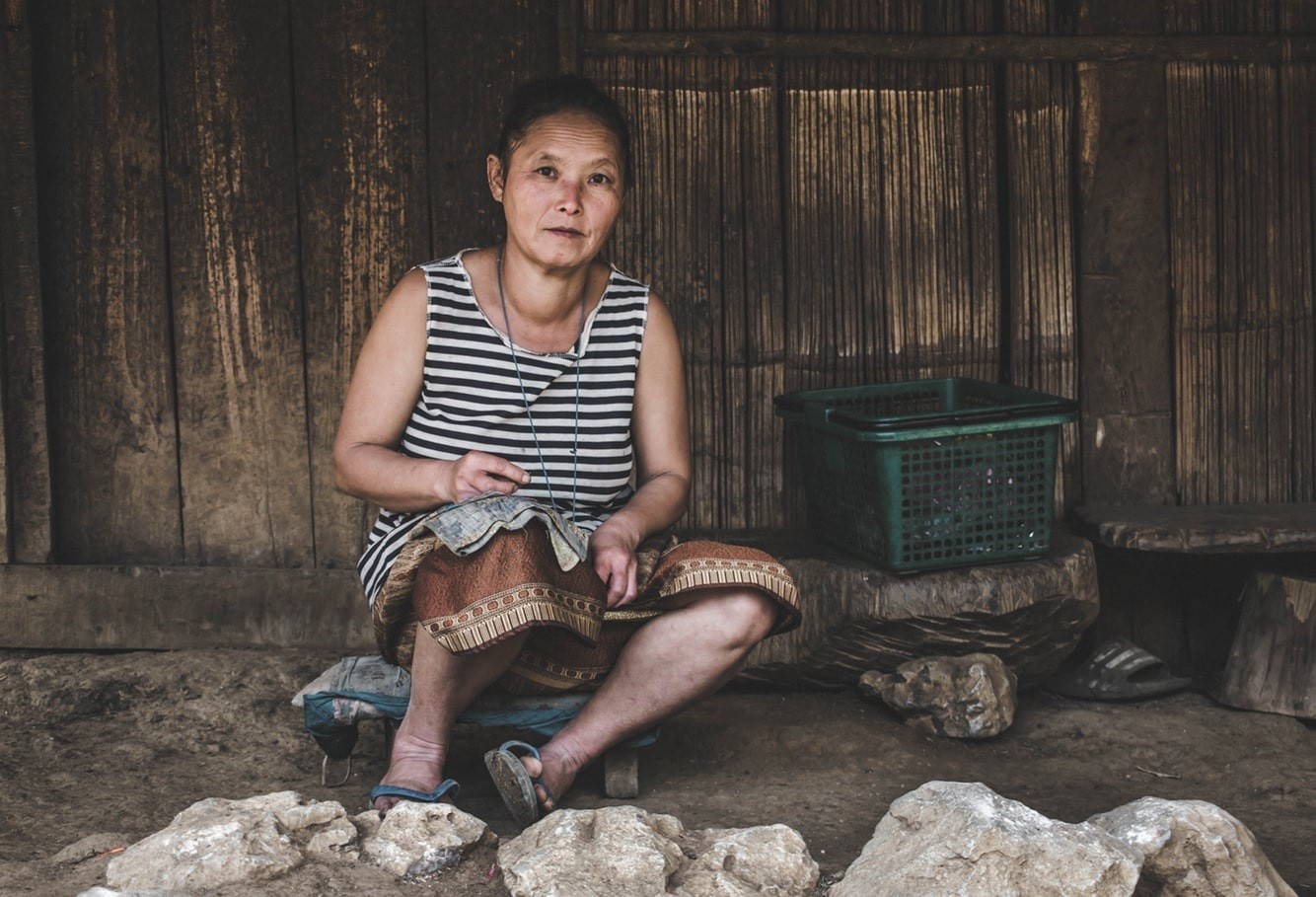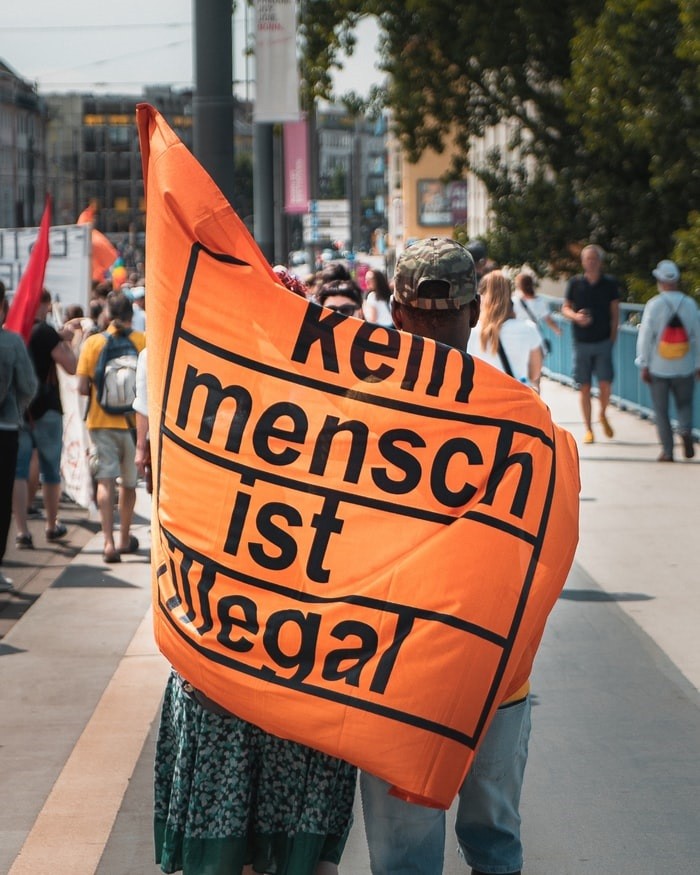Decentralized Finance
DeFi comes down to a better and faster financial system based on blockchain technology. A system that does not discriminate on geographical location and accessibility, a system where the individual is in charge.
Are you with us? Here’s why we need it.
Worldwide financial inclusion
According to the Global Findex Database there are currently 1700 million people who do not have access to basic financial services. Blockchain technology can radically improve the standard of living for this group.
Living in the west comes with its perks. These are a lot of things we consider normal. For instance, you’re known, documented and trusted because of that. When you get a degree, it’s almost automatically assigned to your digital identity. Money is cheap to send and receive. Need a loan? No problem. New job? Let’s double check with your former employer. Yes, things are handled and taken care of very well. Do we even need financial innovation?
Financial inclusion is normal in the west, but not in the world. This is only one of many major issues that can be solved with the help of blockchain technology.
Financial inclusion is normal in the west, but not in the world. This is only one of many major issues that can be solved with the help of blockchain technology.

Being undocumented
1700 million is a third of the world’s population. For people without documentation, things we would consider a part of basic living standards are unattainable. For instance, without an official ID this group of people cannot attain an internationally recognized degree and have no digitally traceable work history.
Also, this group usually pays in cash (can you still imagine?), cannot loan money cheaply, nor send it cheaply, as they are often not banked (digitally). There’s no solid infrastructure to take care of these things, or the security to manage it.
First, let us understand decentralization.

The three models of centralization
Here we have three network models. The first model, centralized, is the model prevalent in finance today. Big and powerful financial institutions in center position and the users or consumers are connected to it and to it alone.
If we use the centralized model to send value to some other user of a centralized network, that value will have to go through the central party, controlling and observing all value that passes through it. It gives a user no freedom about any of the terms on which value can be sent or received.
Decentralization
Blockchain technology offers us the decentralized model, even the distributed model if we desire it. We believe decentralization is the future because there will be some that lack the desire to manage their finances themselves. Thus, a truly distributed model will never be achieved.
But it’s a lot better than the alternative
Because unlike the centralized model, blockchain technology allows for a network that has no central point of failure. And this is DeFi. With a decentralized/distributed model the chances of malfunctioning have been reduced to near zero, it’s always accessible. The more decentralized a network is, the more censorship resistant it becomes since everyone has a copy of all the data and will continually verify each other.
The most awesome thing is that the decentralized model allows individuals to send their value directly from one person to another; it does not discriminate on participation and allows full autonomy and transparency about the terms and conditions. This is what we call DeFi.
Blockchain versus the world: three use cases for DeFi
Blockchain technology can change many – if not all – of our institutions. Three example use cases about how we envision blockchain will create global and fundamental impact.
A case for financial inclusion
Maria lives in Peru, in a village where her family has lived for generations.
Maria is an ambitious young woman who wishes to become independent and start her own business for which she needs money to get started. If she asks her friends and family the little money they have will be available in cash only. Luckily, she has a cousin in the United States who is willing to send her some money but unfortunately this will cost her cousin a 10% remittance fee.
Even worse: Maria has no verifiable identification and credentials, which a corporate lender needs for the confidence to give her a loan. She also can’t put her house up for collateral because she does not own the deed to the land even though she and her family have lived there for generations. It seems almost impossible for her to realize her dreams without some form of financial infrastructure. But blockchain can make all of this possible.
A case for modern infrastructure
Europe has a growing population of refugees.
This group is often undocumented and consequently has no access to financial services. Refugees create the challenge for European authorities to verify identity and background stories. Some might have been very well educated in their country of origin but lack the means to prove it because their degree is not recognized or was lost during their travels. Others might have relatives in another EU country but can’t prove it.
Without a trustworthy method to prove identity and work experience it becomes very hard to acquire permits, find jobs and make use of health and social services. Even when the situation allows it, and they wish to return to their home countries, there’s the challenge of proving the house they lived in is theirs because there might not be a record of it anymore. Blockchain provides the solution.
A case for digital security
A growing problem ever since the creation of internet technology is that sensitive data can be copied or hacked into and stolen.
Nowadays, we seem to have grown accustomed to news articles about data breaches and stolen information. One big reason why this is possible is that databases accessible by internet are extremely hard to secure.
Hackers are always working to find new ways to get their hands on sensitive documents and personal information to exploit or sell with ill intent. Identity theft, stolen personal information, financial fraud and large-scale money laundering are all massive issues that need to be addressed in a society that is ever more dependent on a digital identity.
What are the benefits?
Privacy and identity
Privacy has been a major issue for years, and a number of people have shown us how compromised we really are.
Data vulnerability
Another day, another compromised database. Our data is valuable and many with ill intent understand this.
Financial transparency
Financial fraud and money laundering by large financial institutions. One would expect them to know better, but it happens too much.
Blockchain and DeFi can offer a solution for all these cases
Blockchain technology solves these challenges for authorities and refugees by providing a network without the necessary large physical infrastructure.
A blockchain is a database that is censorship resistant and always accessible.
That might not be exactly clear, so here’s what it means.
With a simple internet connection on a smartphone this network can be equally accessed by anyone. And because a blockchain database is censorship resistant, identity or work history managed with a blockchain cannot be lost.
At the same time someone connected to, for instance, the Bitcoin network, hereby gains access to an international payment system. With instant micro payments to anyone on the planet in a matter of minutes. Micro loans, micro insurance, binding contracts are all possible with blockchain technology and are being built on Ethereum. It’s easy to create a blockchain wallet and accessible by means of smart contracts. Now this provides us true financial freedom and equality. A true use case of DeFi.
This means that with Blockchain Maria can now manage her identity, verify ownership of her possessions and access worldwide financial services. Awesome right? Her chances of realizing her dreams have just increased many times. The refugee can now easily proof his or her identity, family relations and education. Easy. It also allows a refugee to take all their money with ease to any country and to be sure that the land they owned in their country is still theirs when they get back.
Some real examples of blockchain adoption
Blockchain is the future – but the future is already here. Have a look at two examples of Blockchain and DeFi entering in the conventional world of FinTech. For more see developments.
EEA – Ethereum Enterprise Alliance
With industry titans like JP Morgan, Santander, ING, UBS, Credit Suisse, Microsoft and BP as its founders it was clear this was a game changer for the then 2-year-old Ethereum.
Morgan Stanley
Morgan Stanley made a report in 2018 called: Update: Bitcoin, Cryptocurrencies & Blockchain


